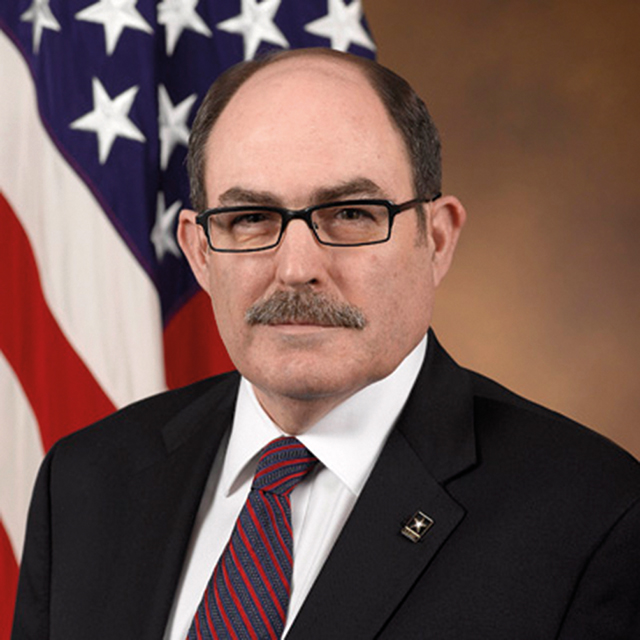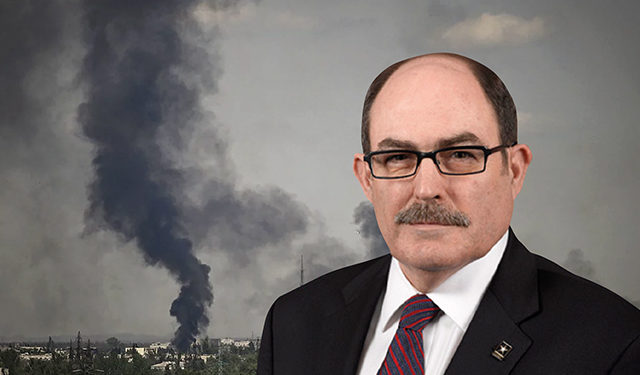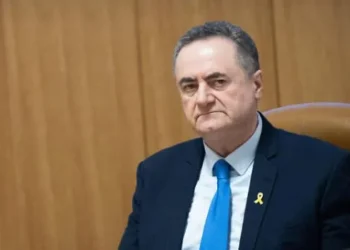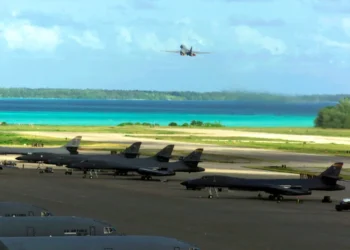Prof. Col. David Johnson is a principal researcher at the RAND Corporation whose work focuses on strategy, military doctrine, history, innovation, civil-military relations, and professional military education. Radio Free Europe / Radio Liberty’s Georgian service spoke to him about the ongoing war, the Russian strategy, and the looming food security crisis.
“Now is a very hard part of the war. From what I read, the Russian plan was what they did in Czechoslovakia, in Afghanistan and Chechnya, which is to aim for a very quick coup,” Johnson tells us. “If it works, the war is over, if it doesn’t and you meet resistance, you back away and do what they’re doing now and what they’ve always done: rely heavily on massive firepower and a very slow, incremental attrition maneuver. You just grind, and what you’re betting is that you have more staying power than the adversary does, not just in people, but in munitions. You hear a lot about Russians using dumb munitions, not having precision.
They don’t need precision for what they’re doing. If your target is Mariupol, then the rocket is sufficiently precise. We are looking at this war from our perspective and we see what we would do, not what the Russians are actually doing. Now we are 100 days into the war, Ukrainians are fighting a good fight but the Russians are slowly grinding their way through Donbas. When Russians set their mind on something and pile on, it’s very hard to stop.
“The biggest killer in the battlefield is not Javelins or switchblades and all the other stuff, it’s artillery. Both sides say that. Clausewitz said, and I’ll paraphrase, ‘in wars of exhaustion, don’t become exhausted first.’ That’s what the Russians are banking on, that they will exhaust the Ukrainian manpower and resources. What the West can do is to keep them steadily supplied with the things they need to fight with. It’s a grinding war of attrition, and we need to give them the means to stay in the fight.”
Are we giving them enough at this point?
Quite frankly, it’s impossible to tell. There have been no retreats or big defeats. Everything so far has been slow and incremental, as far as the Russian advances are concerned. There have been some Ukrainian counter attacks, so they’re able to do something. This is a long war. When the Nazis invaded, during Operation Barbarossa, it took them over three months to get to Kyiv with 3 million soldiers. And now it’s 100 days. I think we can have no idea how long this will go on for.
We also have no idea what the real Ukrainian losses are. We get Ukrainian estimates of what Russian losses are, but they’re probably inflated. Nobody really knows with any certainty what the status of the two combatants is right now. And the only thing that matters in a war of attrition is whether the units that are engaged are able to continue. And you have empirical evidence that they are continuing. But how long that can go on is the real question. The thing we can do to assist Ukrainians is what we’re doing, which is providing munitions and material.
Is the process of providing ammunition speedy enough?
We all know Ukraine wants it done faster. If it was Amazon delivering the next day, they’d still want it faster, which is understandable. If I were them, I wouldn’t want to give the impression that I’m satisfied. My sense is that there’s a pretty reliable supply chain. I don’t know how robust or how fast, but if they’re executing counter-offensives, they have enough material to do it with, or they wouldn’t be attempting them. And it’s important they do, because it keeps the Russians off and keeps the balance to some degree. There haven’t been any large counter offensives, but I think that’s partly because there just hasn’t been the opportunity. Personally, I would think the Ukrainians are doing relatively low risk operations, because the stakes of losing are so high. They’re being very prudent. But I don’t see a big breakthrough on either side, at this point, until one or the other is exhausted, and there’s no telling when that will be.
You hear a lot about Russians using dumb munitions, not having precision. They don’t need precision for what they’re doing. If your target is Mariupol, then the rocket is sufficiently precise
What’s your take on the long range missiles dilemma?
Whatever we do, Russia will protest. Even though Ukraine says “we’re not using them to hit Russia,” Russia is going to say they did, and that there’ll be consequences. But I take the Ukrainians at their word. One reason they had to be within 40 kilometers or so of the border is that the Russians are between them in that place, so they’re in a standoff anyway, towards the max range of the weapon inside Ukraine. There’s nothing really in Russia for them to shoot at that could really contribute to the end of fighting, other than just to say, “look, we shot at Russia.” So I think what we’re giving them are systems to help them in the counter firefight, and that is important, because that’s what’s really causing damage on both sides. And we’ve given them very accurate radars to help give them guidance- when Russia fires artillery, they’ll know within seconds where it came from, and be able to shoot back before it can hit. But if you don’t have well-trained units, if they shoot and they don’t move quickly, they become a target. Moving them takes time and Russians have a lot of them.
When Ukraine was on the defensive, we praised them for doing their job well, despite the Russian superiority in weapons and numbers. Ukrainians are now on the counter offensive against that force with better artillery and pretty much every advantage there is. What chances are there for a successful counter offensive?
What is the nature of the counter offensive? What are the objectives? The Russians are extended throughout the Donbas, so you can’t attack everybody. The objective may be to destroy some Russian forces, disrupt the logistics supply lines a bit. If they disrupt their supply chain, or take out some of their headquarters, it’ll affect the entire operation across the front.
How to explain the statistics on Russian generals as being either very eager to die or very susceptible to Ukrainian fire?
We have become very used to having our cell phones and don’t realize that they’re transmitting our location every minute we’re talking. And they can be located. They are also being monitored for information because they’re not secure. The other issue is the amount of emissions coming out of large headquarters. It’s like a bonfire of electric electromagnetic energy, with 30 radios blaring away inside of a building or a tent. So, if it’s got that kind of activity, if there’s that many radios on, you know it’s not a squat, not a company, not a battalion: It’s probably a headquarters for something. So those become targetable fairly easily. If you’re tracking communications and they’re not secure, and as I understand just from what I see in the press, a lot of Russian communications aren’t secure, then you can listen in on the general’s orders stating where he’s going. I think that’s what’s happening, not “he’s gotta be out there on the front because his soldiers won’t do what they’re supposed to do.”
Tell us about the Russian morale.
Fighting spirit is a huge component of warfare. An army that has no morale and no will to fight is usually not successful. We’re seeing that’s true about the Russians, but 100 people refusing to do something out of a million is not like the world coming to an end. Those 100 will all be enjoying their new accommodation in Siberia now. The Ukrainian ability to stay in the fight is remarkable. But so is the Russian. If they’re that poorly led, and they’re having that much difficulty, the fact they keep pushing on is really something. We say the Russian army consists of conscripts and is poorly led, all the officers are corrupt, but that’s the same kind of army they had in WW2 which beat the best army in the world. This is the same army that Tolstoy wrote about in “War and Peace.” There’s just something about the Russian spirit and something about the “Motherland in Russia” that we just don’t understand. We all say the reason they support the war is that they’re afraid of the police, propaganda, they’re not really getting polled correctly. But I have a feeling that the average Russian knows what’s going on, and approves. We shouldn’t assume they’re going to quit, that everybody is going to sit down in Red Square and protest. I don’t see that. I don’t see their soldiers deserting in large numbers or quitting. The worst thing you can do in a war is underestimate your enemy.

What started the Arab Spring was a shortage of cooking oil and food and that’s exactly what we’re replicating right now
How committed is the West going to remain as the war goes on?
My concern is that as this drags on and becomes less spectacular, there’ll be less attention paid to it, because there’ll be something else, like the horrific school shooting this week, which understandably totally dominated the news. But there was a poll here that said 70% of America supports NATO helping Ukraine. And that’s with gas prices being fairly high already and inflation being a problem and the baby-food shortage, etc. But if it’s a cold winter in Europe and there’s no cheap fuel, people are going to start wondering, “when’s this going to end?”
Another issue is that a lot of agricultural commodities for the world come from Ukraine. What started the Arab Spring was a shortage of cooking oil and food, and that’s exactly what we’re replicating right now. Effects will start to manifest themselves fairly quickly from the perspective of food, but others will start coming in the next year. There’ll be huge demands on the West to feed the rest of the world and provide them with things that Ukraine has, or to get some kind of agreement and open up Odessa, which I don’t see the Russians doing.
We’re used to short, quick wars, like, there’s a storm of 100 hours and then the parade. That’s not what this is. This is what war is really like, between two adversaries that are both pretty evenly matched competence wise, size wise, and equipment wise. My sense is that some things are going to take weeks and weeks in the Donbas for this to resolve itself one way or the other. It’s very unsatisfying for people that want to turn on the news next Thursday and see the peace conference.
The harbor would have to be de-mined and Kyiv would need security guarantees that Russia would not then attack the port. That would mean Russia explicitly saying, “No, I’m not going to take Odessa”
There’s an agreement that says commercial shipping can go freely into and out of the Black Sea through the Dardanelles. Any military shipping has to be approved by Turkey, but Turkey has been a little bit obstinate lately about NATO. I think this is a solution that is independent of the real problem. The real problem is, it’s to Russia’s benefit to have people feel shortages, and Ukraine unable to export and its economy in the tank. Why would they support a humanitarian effort that’s going to benefit Ukraine? Putin has not yet been particularly accommodating of any suggestions. We’re looking for an answer without really understanding what the full problem is. If I was Putin, I wouldn’t do it.
My preferred outcome is that NATO and other states make up the shortages for the rest of the world. There’s a lot of grain production elsewhere. The US produces an enormous amount of grain, there are countries in Asia. The price will go up, but it could be completely independent of what’s going on in Ukraine. We decided we’re going to make up for a lot of the natural gas shortage in Europe from the US, we’re talking to OPEC countries about increasing production.
If we don’t stop the war, we’ll have to figure out a way to make up for the shortages. They’ll be more expensive and I don’t know what the quantities would be, but there’s an immutable law that something will fill the vacuum.
In the long term, the West might get tired and reduce support, but maybe the longer it goes on, the more committed we’ll be to a favorable outcome. We’ve seen the types of weapons going in change. We sent helmets early on and now we are seeing Himars and Gepard air defense systems. We’ve become more committed to the success of Ukrainians over time, not less, and the stakes have gotten higher.
What would constitute partial or full victory for each side?
My sense is that the only person in the world who knows what the Russian goals are is Putin, but it looks like he wants to secure the entire region of Lughansk, which was partially separated from Crimea with the invasion, and make it into a puppet state like Chechnya. But is that enough? Or is it just like Crimea was – a stopping point before getting ready for the next one? There’s a lot of talk about not humiliating Russia. Take Macron- he’s even going back to the Versailles Conference, the Cartagenean peace that created the situation that allowed the rise of the Nazis 20 years later because of the privations envisaged on the Germans. Whether you share it or not, it’s not an unreasonable analogy. What’s missing from it is that peace was made after someone had won the war. Whether it was good or bad peace, the war had to be over before it became possible. From the Ukrainian perspective, anything but a maximalist proposition is really hard to consider after the sacrifices they suffered and the atrocities they have seen. So, if I were Zelensky, it would be hard for me to be conciliatory at this point. They’ll start with this maximalist view of getting back everything they held before this war and that might change over time with diplomacy or developments on the battlefield. If the Russians turn out to be as fragile as some people say and collapse on the field, Ukraine will get it all back. If not, maybe they’ll get less. You shouldn’t presuppose the outcome or mandate that to either side, because one side is going to get more than they thought they were.
Interview by Vazha Tavberidze














